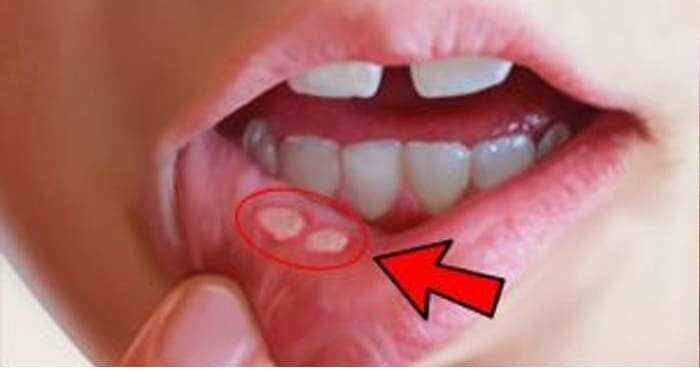Introduction
When it comes to our health, we often focus on the more visible aspects of our bodies, like our skin, muscles, and heart. However, we shouldn’t overlook the importance of our kidneys. These bean-shaped organs play a critical role in filtering waste and excess fluids from our blood, maintaining our body’s overall balance. In this comprehensive guide, we will explore how to take care of your kidneys, emphasizing why you should avoid washing them and providing essential tips for maintaining kidney health.
Don’t Wash the Kidneys, Do This
The title might sound peculiar, but it holds an essential truth about kidney health. Our kidneys are self-cleaning organs, and attempting to “wash” them through excessive consumption of water or other methods can disrupt their delicate balance. Instead, focus on these key strategies for kidney care:
1. Stay Hydrated, but Don’t Overdo It
Proper hydration is crucial for kidney health, but excessive water intake can strain your kidneys. Aim for the recommended daily water intake of around 8 cups (64 ounces), adjusting it based on your activity level and climate.
2. Maintain a Balanced Diet
A well-balanced diet is vital for overall health, including kidney function. Incorporate plenty of fruits, vegetables, lean proteins, and whole grains into your meals. Minimize your sodium and sugar intake, as these can lead to kidney problems when consumed in excess.
3. Monitor Your Blood Pressure
High blood pressure can damage your kidneys over time. Regularly check your blood pressure, and if it’s consistently high, consult a healthcare professional for guidance on managing it.
4. Limit Alcohol and Caffeine
Both alcohol and caffeine can dehydrate the body if consumed excessively. Moderation is key to prevent kidney strain.
5. Avoid Smoking
Smoking is a leading cause of kidney cancer and can worsen existing kidney conditions. Quitting smoking can significantly benefit your kidney health.
6. Exercise Regularly
Regular physical activity promotes better blood circulation and overall health, benefiting your kidneys. Aim for at least 150 minutes of moderate-intensity exercise per week.




7. Manage Chronic Conditions
Conditions like diabetes and hypertension can harm your kidneys if left uncontrolled. Work closely with your healthcare provider to manage these conditions effectively.
8. Maintain a Healthy Weight
Being overweight can increase your risk of kidney disease. Achieve and maintain a healthy weight through a combination of diet and exercise.
9. Don’t Overuse Pain Medication
Over-the-counter pain relievers, if used excessively, can harm your kidneys. Follow the recommended dosage and consult a healthcare professional if you require pain relief regularly.
10. Get Adequate Sleep
Quality sleep is essential for overall health, including kidney function. Aim for 7-9 hours of restful sleep per night.
11. Practice Stress Management
Chronic stress can contribute to kidney problems. Explore stress-reduction techniques such as meditation, yoga, or deep breathing exercises.
12. Stay Informed
Educate yourself about kidney health and the potential risks. Awareness is the first step in prevention.
13. Regular Check-ups
Schedule regular check-ups with your healthcare provider to monitor your kidney function and overall health.
14. Herbal Supplements Caution
Be cautious with herbal supplements, as some can be harmful to your kidneys. Consult a healthcare professional before taking any new supplements.
15. Limit High-Protein Diets
High-protein diets can strain your kidneys. If you’re considering such a diet, consult a nutritionist for guidance on a kidney-friendly approach.
16. Reduce Phosphorus Intake
Excess phosphorus in your diet can harm your kidneys. Be mindful of phosphorus-rich foods and consider a low-phosphorus diet if recommended by your healthcare provider.
17. Avoid Excessive Alcohol
Excessive alcohol consumption can lead to kidney damage. Limit your alcohol intake to recommended guidelines.
18. Control Blood Sugar
If you have diabetes, manage your blood sugar levels diligently. Consistently high blood sugar can harm your kidneys.
19. Protect Against Infections
Kidney infections can be serious. Maintain good hygiene, stay hydrated, and seek prompt treatment for urinary tract infections.
20. Kidney-Friendly Foods
Incorporate kidney-friendly foods like berries, apples, and fish into your diet to support kidney health.
21. Limit Processed Foods
Processed foods often contain high levels of sodium and additives that can harm your kidneys. Opt for fresh, whole foods whenever possible.
22. Be Mindful of Medications
Some medications, including antibiotics and pain relievers, can affect kidney function. Always follow your healthcare provider’s recommendations.
23. Alcohol-Free Cleanses
Be cautious of trendy detox cleanses, especially those involving alcohol or extreme fasting. They may do more harm than good.
24. Stay Active
Regular physical activity supports kidney function and overall well-being.
25. Know Your Family History
Understanding your family’s medical history can provide valuable insights into your own kidney health risks.
Frequently Asked Questions (FAQs)
Can drinking too much water harm my kidneys?
Yes, excessive water intake can put undue stress on your kidneys. It’s essential to strike a balance and not overhydrate.
Are kidney problems reversible?
Some kidney problems can be managed and even reversed with early detection and appropriate lifestyle changes. However, advanced kidney disease may be irreversible.
What foods should I avoid for kidney health?
To maintain kidney health, limit your consumption of high-sodium, high-sugar, and high-protein foods. Processed foods and excessive caffeine should also be avoided.
Can kidney health be improved through diet?
Yes, adopting a kidney-friendly diet rich in fruits, vegetables, and lean proteins can help improve and maintain kidney health.
Is kidney health solely determined by genetics?
While genetics play a role, lifestyle choices, including diet, exercise, and avoiding harmful substances, have a significant impact on kidney health.
How can I prevent kidney infections?
Preventing kidney infections involves maintaining good hygiene, staying hydrated, and seeking prompt treatment for urinary tract infections.
Conclusion
Your kidneys are vital organs that deserve the utmost care and attention. Instead of attempting to wash them, focus on maintaining a healthy lifestyle that supports their natural function. By following the tips outlined in this comprehensive guide, you can safeguard your kidney health and enjoy a higher quality of life.




